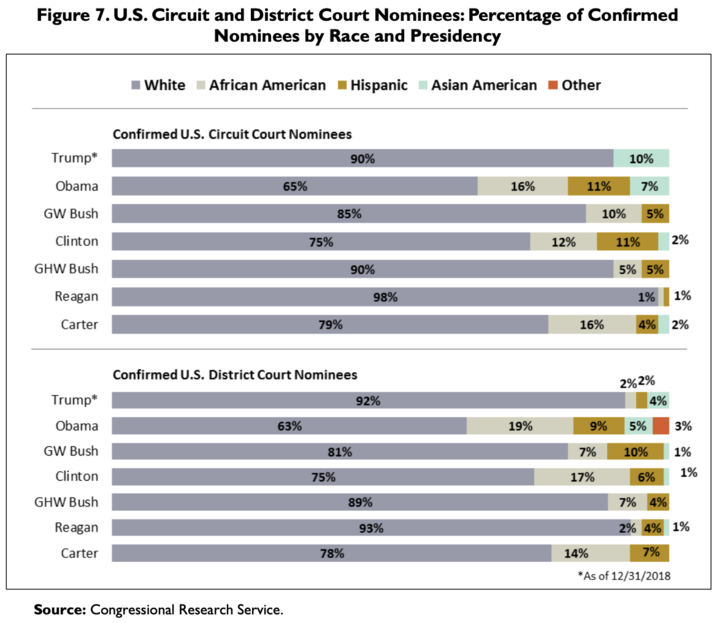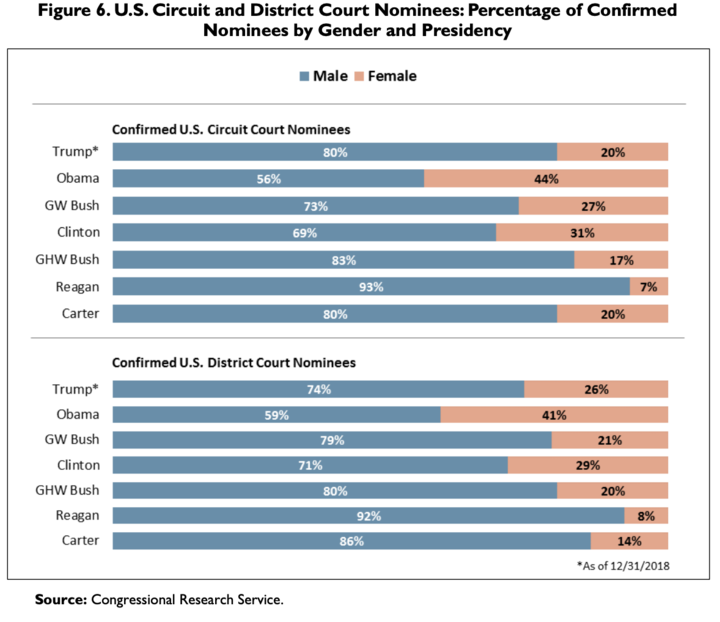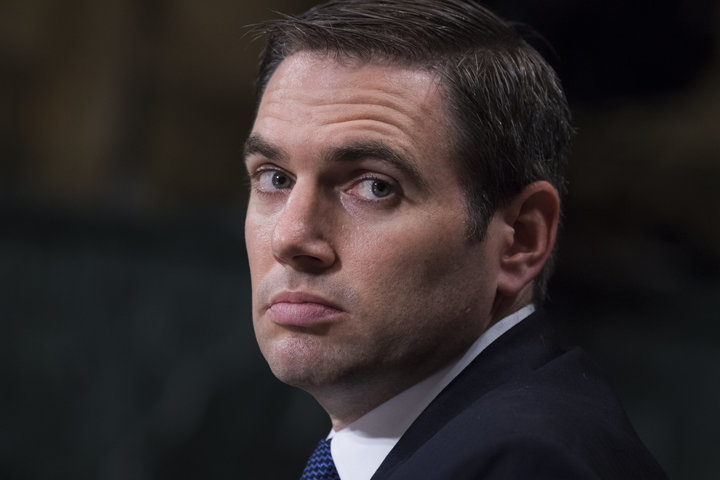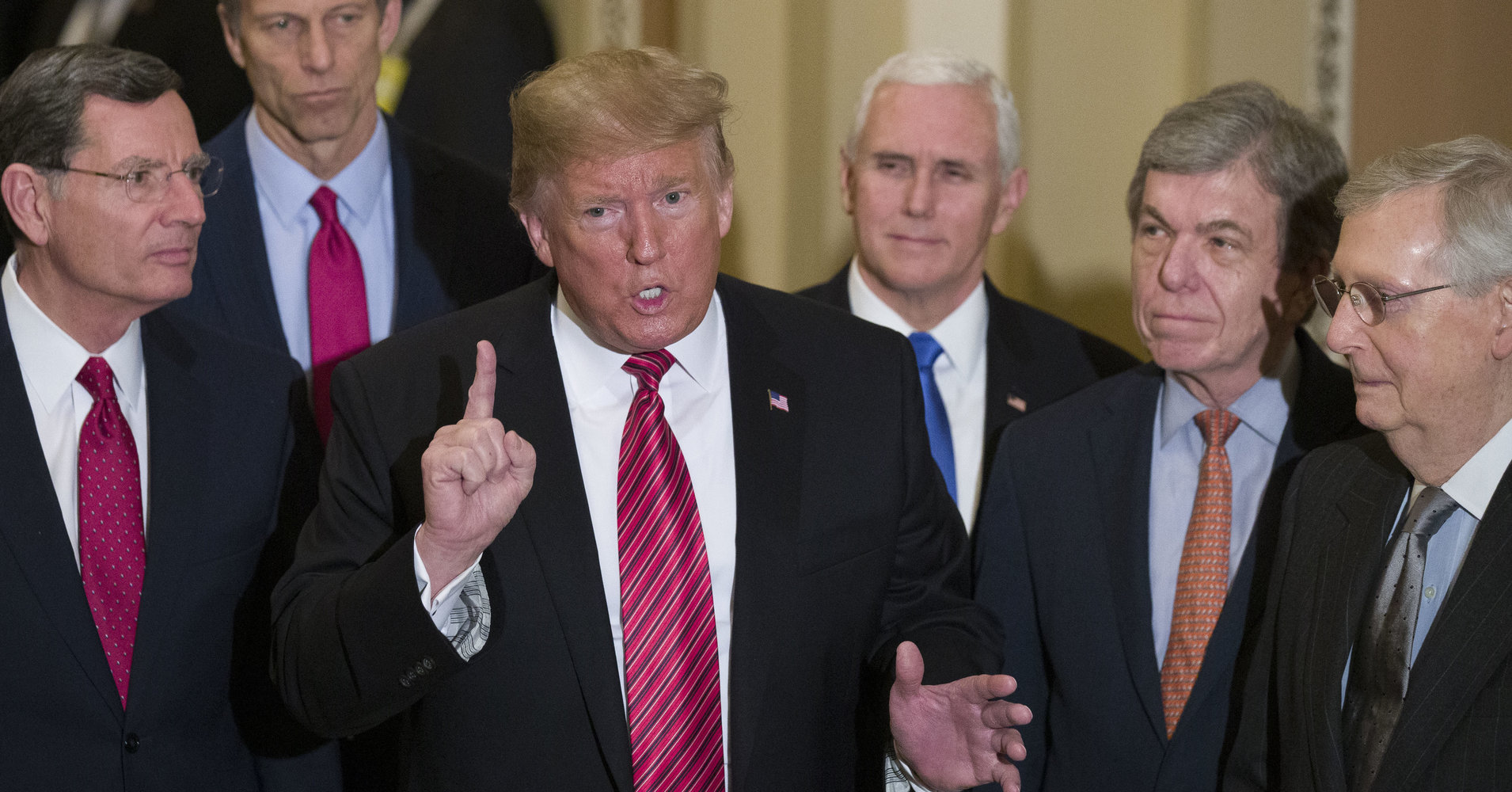[ad_1]
WASHINGTON ― President Donald Trump has done something remarkable to the nation’s federal courts: he’s filled up their empty seats with clones of Vice President Mike Pence.
Whether it’s for district courts or higher-ranking appeals courts, Trump’s confirmed lifetime judges are overwhelmingly white men with records of opposing abortion, LGBTQ rights and voting rights.
A whopping 90% of the Trump picks confirmed for appeals courts in his first two years in office were white, according to a Congressional Research Service analysis. 10% were Asian American. He didn’t confirm any African American or Hispanic circuit judges.
In that same period, 92% of his confirmed district court judges were white. 4% were Asian American, 2% were African American and 2% were Hispanic.

As for the gender breakdown, 80% of Trump’s confirmed appeals court judges and 74% of those approved for the district courts were male.

For some context, 65% of President Barack Obama’s confirmed appeals court judges were white, as were 63% of those he placed on district courts. In terms of gender, 56% of Obama’s confirmed appeals court judges and 59% of his confirmed district court judges were male, per the CRS analysis.
What does it all mean? It means that Trump is making the federal courts a lot less diverse than they were after Obama left office. And less diversity means fewer of the people making decisions on the nation’s most powerful courts reflect the demographics of the populations they serve, which limits perspectives on critical issues like abortion rights, criminal justice and employment discrimination.
“Trump has compiled a poor record of nominating and confirming accomplished, conservative [but] centrist, ethnic minority, female and LGBTQ candidates,” Carl Tobias, a University of Richmond law professor and expert on judicial nominations, said in an email. “[T]he appointment of diverse candidates would enhance the justice that courts deliver and parties merit.”
Some glaring holes in the makeup of Trump’s judges: he didn’t nominate any African American women to be appeals or district judges during his first two years ― though last month he nominated two. He hasn’t nominated any Native American judges. He’s nominated two LGBTQ people for federal court seats, but neither have been confirmed.
More than 80% of Trump’s judges are also members of the Federalist Society, a powerful Washington-based organization of conservative lawyers that has been feeding the White House the names of young, anti-abortion, anti-LGBTQ, anti-voting rights attorneys to confirm to judgeships.
Some of the group’s confirmed picks have included appeals court judge Amy Coney Barrett, 47, who suggested Roe v. Wade was an “erroneous decision” and called the Affordable Care Act’s birth control benefit “an assault on religious liberty.”
Appeals court judge Eric Murphy, 40, defended Ohio’s notorious voter purge law that will make it disproportionately harder for minority, low-income and disabled voters to vote.
Appeals court judge John Bush, 54, has compared abortion to slavery and referred to them as “the two greatest tragedies in our country.” He has also said he strongly disagrees with same-sex marriage, mocked climate change and proclaimed “the witch is dead” when he thought the Affordable Care Act might not be enacted.
Both of Trump’s Supreme Court appointees, Neil Gorsuch and Brett Kavanaugh, are Federalist Society members too (as well as white males).

The White House and Senate Majority Leader Mitch McConnell (R-Ky.) have been laser-focused on filling appeals court vacancies because these courts often have the last word in federal cases. The Supreme Court only hears about 100 to 150 cases every year, compared to the more than 50,000 cases heard by appeals courts.
To date, Trump has won confirmation of 37 appeals court judges and 58 district court judges. At the appeals court level, that’s more than any president has confirmed in his first two years and means that one in five judges on the nation’s appeals courts was nominated by Trump.
McConnell is now turning his attention to the 125 vacancies on district courts. Republicans blew up the Senate rules last month to make it a lot easier to confirm district court judges, so it’s possible they’ll fill all of those vacancies by the end of Trump’s first term.
It’s too early to draw conclusions about how Trump has changed the federal courts. For one thing, despite the president getting so many appeals court judges confirmed, his picks are mostly replacing other judges appointed by Republican presidents, meaning the White House might not be able to tilt the partisan balance on those courts as much as it wants unless Trump wins a second term.
Russell Wheeler, a fellow in the Brookings Institution’s governance studies program, said the balance among appeals court judges appointed by Democratic or Republican presidents is beginning to shift toward the GOP in a few circuits. “Whether that pace will stay steady is hard to say,” he said.
But even where Trump has filled a court seat previously occupied by a Republican-appointed judge, there are significant differences. Trump’s judicial nominees are generally younger and have a clearer right-wing ideological bent than the people they’re replacing.
As Wheeler put it in February, “When Trump replaces a 72-year-old slightly right-of-center judge with a 45-year-old conservative firebrand, it’s not really apples for apples.”
[ad_2]
Source link

